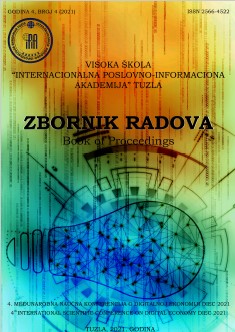DIGITAL INTELLIGENCE
DIGITAL INTELLIGENCE
Author(s): Enaida BejdićSubject(s): Cognitive Psychology, ICT Information and Communications Technologies, Distance learning / e-learning
Published by: Internacionalna poslovno – informaciona akademija
Keywords: digital intelligence; digital literacy; IEEE 3527.1 standard; digital skills;
Summary/Abstract: According to DQ Institute, Digital Intelligence is a comprehensive set of technical, cognitive, meta-cognitive, and socio-emotional competencies grounded in universal moral values that enable individuals to face the challenges of digital life and adapt to its demands. Compared to the exponential speed of connectivity and technology advances, implementation of effective digital competency education, training programs, and policies occur at a far slower pace and this speed gap is increasingly growing. Such gaps have yielded serious, unintended negative consequences for individuals as well as for society as a whole – cyberbullying, technology addiction, online grooming, the spread of digital misinformation, privacy invasion, security threats, and many others. Until last year, there were no shared, global understanding of what terms such as digital literacy and digital skills mean. DQ Framework was created by Dr. Yuhyun Park and developed through an academically rigorous process by her research team. Framework is structured around two categories: areas and levels of digital intelligence. Eight broad areas have been identified: digital identity, digital use, digital safety, digital security, digital emotional intelligence, digital communication, digital literacy and digital rights. IEEE recognized the comprehensive and adaptive nature of the DQ Framework and decided to institutionalize the DQ Framework - standard for DQ IEEE 3527.1 was approved on 24 September 2020. This would be one of the steps in managing our digital reality which leaves us with the task of constantly measuring and reviewing of what has been achieved. This way, further negative and possibly even worse consequences can be prevented.
Journal: Zbornik radova Međunarodne naučne konferencije o digitalnoj ekonomiji DIEC
- Issue Year: 4/2021
- Issue No: 4
- Page Range: 81-98
- Page Count: 18
- Language: English

